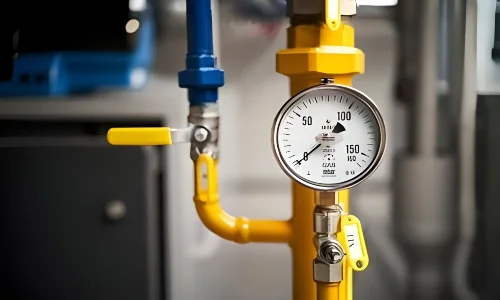Instrumentation valves play a crucial role in industrial applications in terms of safety. In industrial facilities, safety measures are important to ensure the well-being of employees and prevent damage to equipment. Instrumentation valves are utilized to accomplish this objective. By allowing for a controlled flow of fluids and gases, they ensure that all processes maintain optimal operating conditions. Uncontrolled flow can lead to malfunctions which can lead to dangerous conditions such as overpressure, cavitation, or fluid hammer which can destabilize the process and even compromise the safety of personnel.
What Are Instrumentation Valves?
Instrumentation valves are mechanical devices commonly used in the oil and gas, petrochemical, chemical and power generation industries to regulate the flow of fluids and gas. They are made from high-quality raw materials and engineered to withstand harsh operating conditions like high pressures, temperatures and corrosive environments.
Types of Instrumentation Valves
There are different types of instrumentation valves available in the market to suit different industrial processes. The most commonly used flow valve in Texas are:
- CONTROL VALVES: A control valve is a power-operated device used to control the flow and pressure of fluids and gas. The level of regulation is based on the signal given by a computer. It is used mainly in industrial HVAC systems such as air conditioners, unit ventilators, fan coils, VAV boxes and other devices.
- MANIFOLD VALVES: A manifold valve is a hydraulic system with single or multiple block isolation valves. The valves can be either ball, needle, bleed or vent. Manifold valves are generally used in static pressure gauges and instrument applications.
- BALL VALVES: A ball valve is a shut-off valve that can either allow, obstruct or control the flow of liquids and gases by rotating a ball with a bore inside the valve. It is used within shutdown valves in onshore and offshore oil and gas production.
How Instrumentation Valves Work?
Instrumentation valves control the flow and pressure of fluids in a system. They function by opening, closing, or partially obstructing passageways using a stem that moves within the valve body. Operated manually or automatically, these valves ensure precise regulation, isolation, and safety in measuring instruments. Instrumentation valves function by controlling the flow of fluids or gases in industrial processes through precise manipulation of their internal mechanisms. When in the open position, the valve allows fluid or gas to flow freely, while in the closed position, it blocks the flow entirely. The control overflow is achieved by adjusting the position of a movable element, such as a ball, plug, or disc, relative to a fixed valve seat. The instrument valves may also feature sealing mechanisms to ensure tight closure and prevent leakage when closed.
In conclusion, instrumentation valves are indispensable components in industrial processes as their ability to manipulate the passage of media within pipelines and tubing systems makes them essential for maintaining optimal performance and ensuring the efficiency, safety, and reliability of various applications
If you need guidance on selecting the right instrumentation valves for your industrial application, get in touch with Arek Solutions, one of the leading valve manufacturers in Texas. They provide different types of instrumentation valves that enhance industrial processes and improve the safety of your plant. Before supplying, they rigorously test their products on different parameters to ensure reliable performance even in challenging environments. With over 70 years of combined expertise, you can depend on Arek Solutions for all instrumentation needs.


